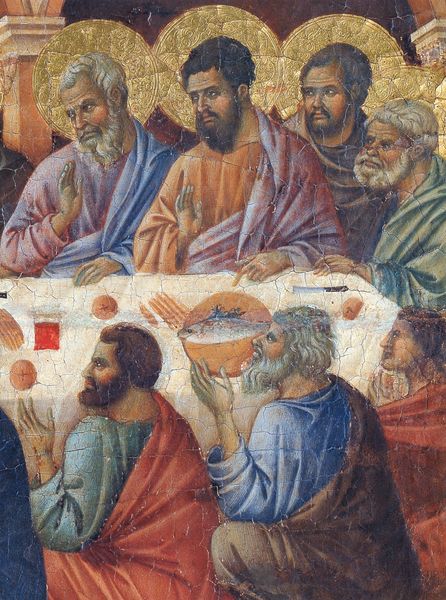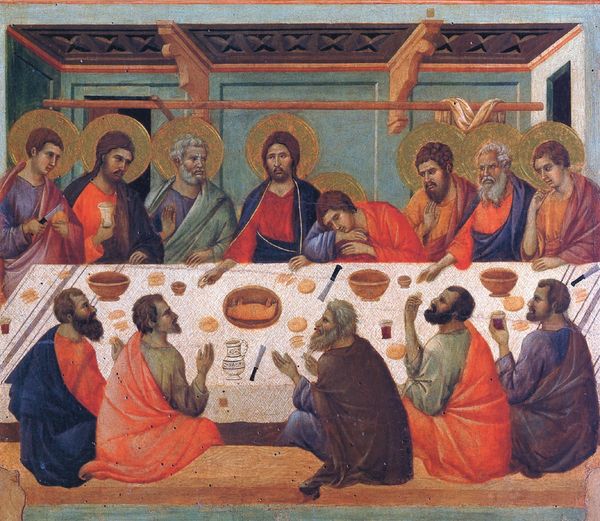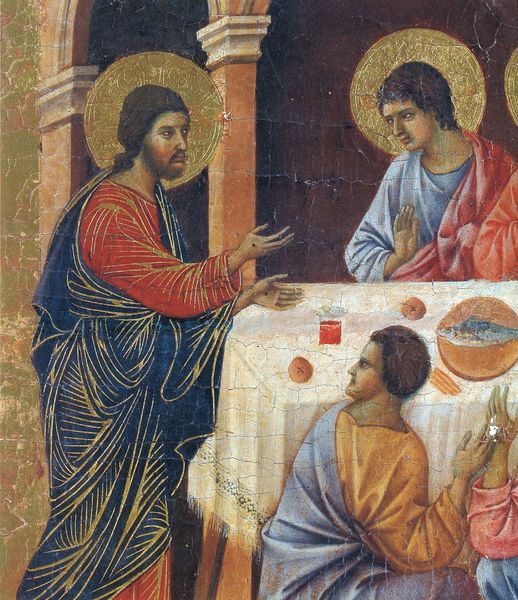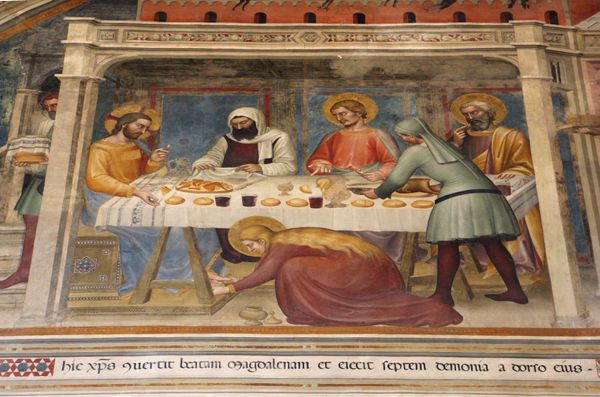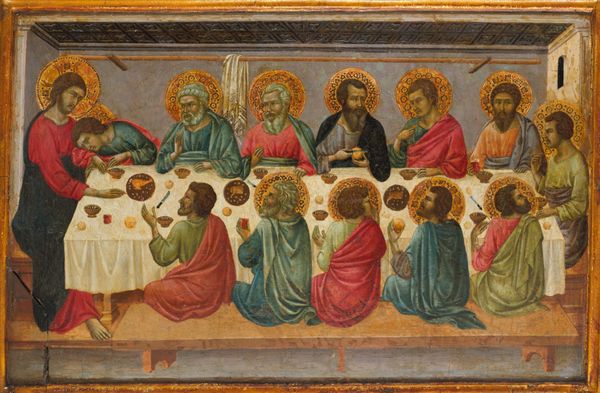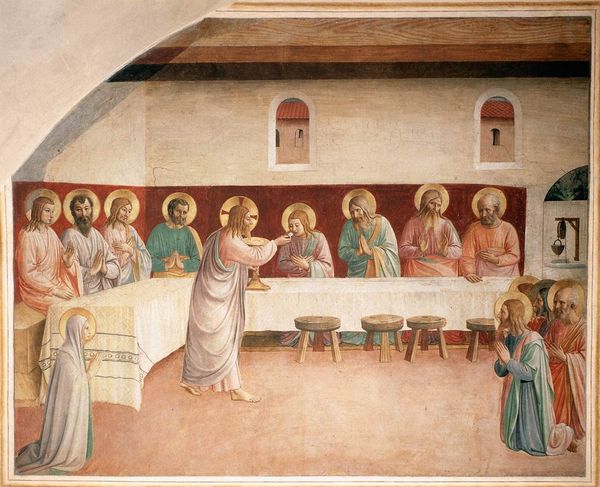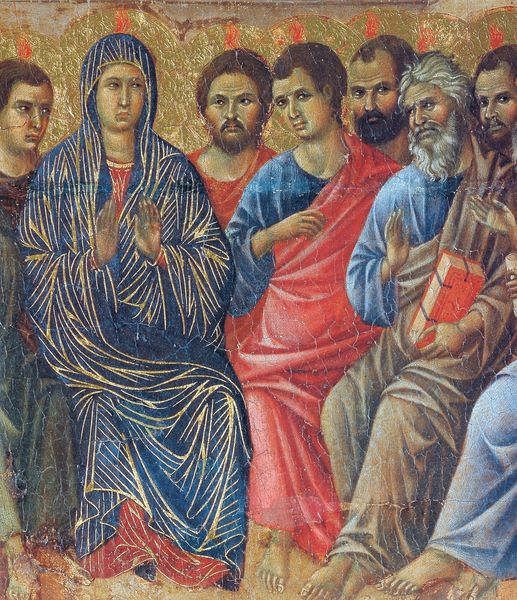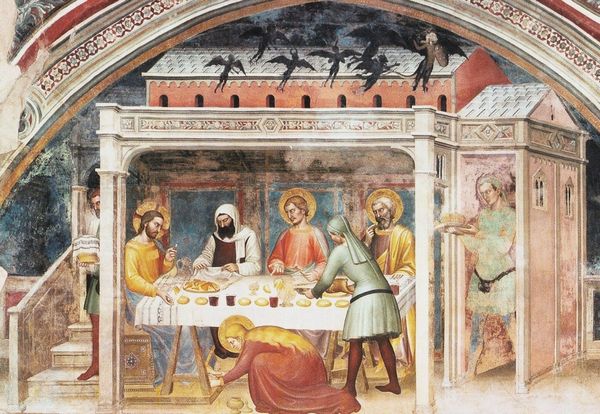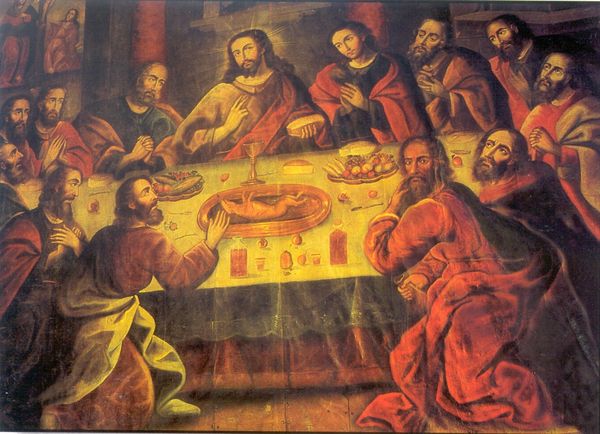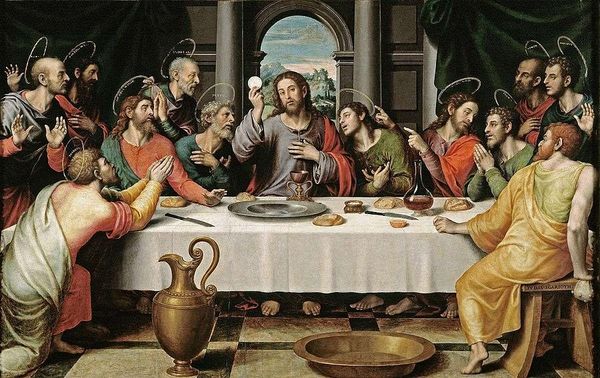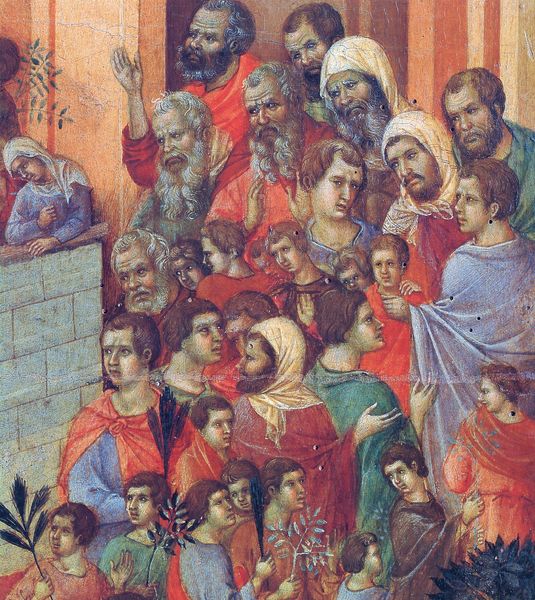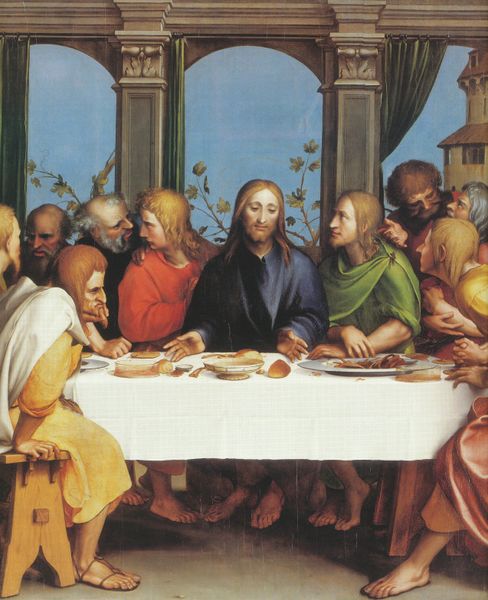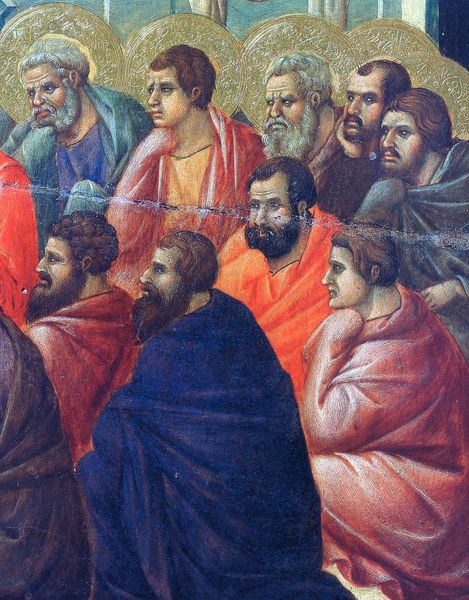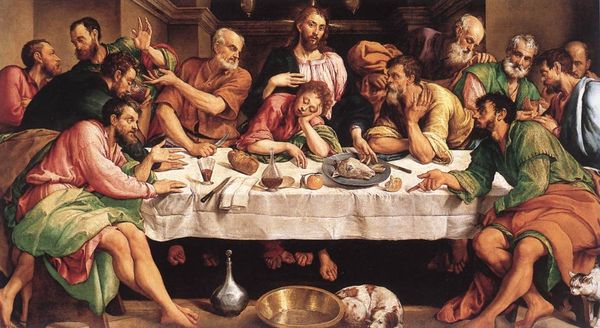
painting, oil-paint
#
medieval
#
painting
#
oil-paint
#
sienese-school
#
painted
#
figuration
#
oil painting
#
jesus-christ
#
christianity
#
history-painting
#
italian-renaissance
Copyright: Public domain
Editor: Here we have Duccio's "The Last Supper (Fragment)," painted around 1311 using oil paints. I'm immediately drawn to the serene yet somber mood. There's a stillness that feels heavy with unspoken meaning. What symbols jump out at you in this piece? Curator: Notice how each figure is framed by a halo, signifying their sanctity, yet their humanity shines through in their expressions, particularly in the face of Christ. The halo is a potent symbol. But consider the figures themselves. Look at the positioning of the hands; each gesture, each inclination of the head seems deliberate. Why do you think that might be? Editor: It feels like they're anticipating something momentous, perhaps even something tragic. The hands could be indicating surprise, resignation, even a plea for understanding. Curator: Exactly. Even the table setting tells a story. See the knives, the simple meal, the lack of elaborate ornamentation. These objects speak to the humility and sacrifice at the heart of the Last Supper. But why fragment it, remove sections to change meaning? Editor: That's a fascinating point. The fragmented nature might amplify the sense of loss, or even invite viewers to complete the narrative themselves. It leaves me with so much to consider. Curator: Indeed, a fragment can sometimes reveal more than the whole. What appears to be missing shapes what remains and charges our emotional interpretation. It highlights memory itself, that is never a complete picture but carefully reconstructed and always slightly biased. What do you make of the placement of Judas here? Editor: It is cropped out. Removing him removes one interpretation in favor of the other. It emphasizes a message of pureness or perhaps even idealization.
Comments
No comments
Be the first to comment and join the conversation on the ultimate creative platform.
